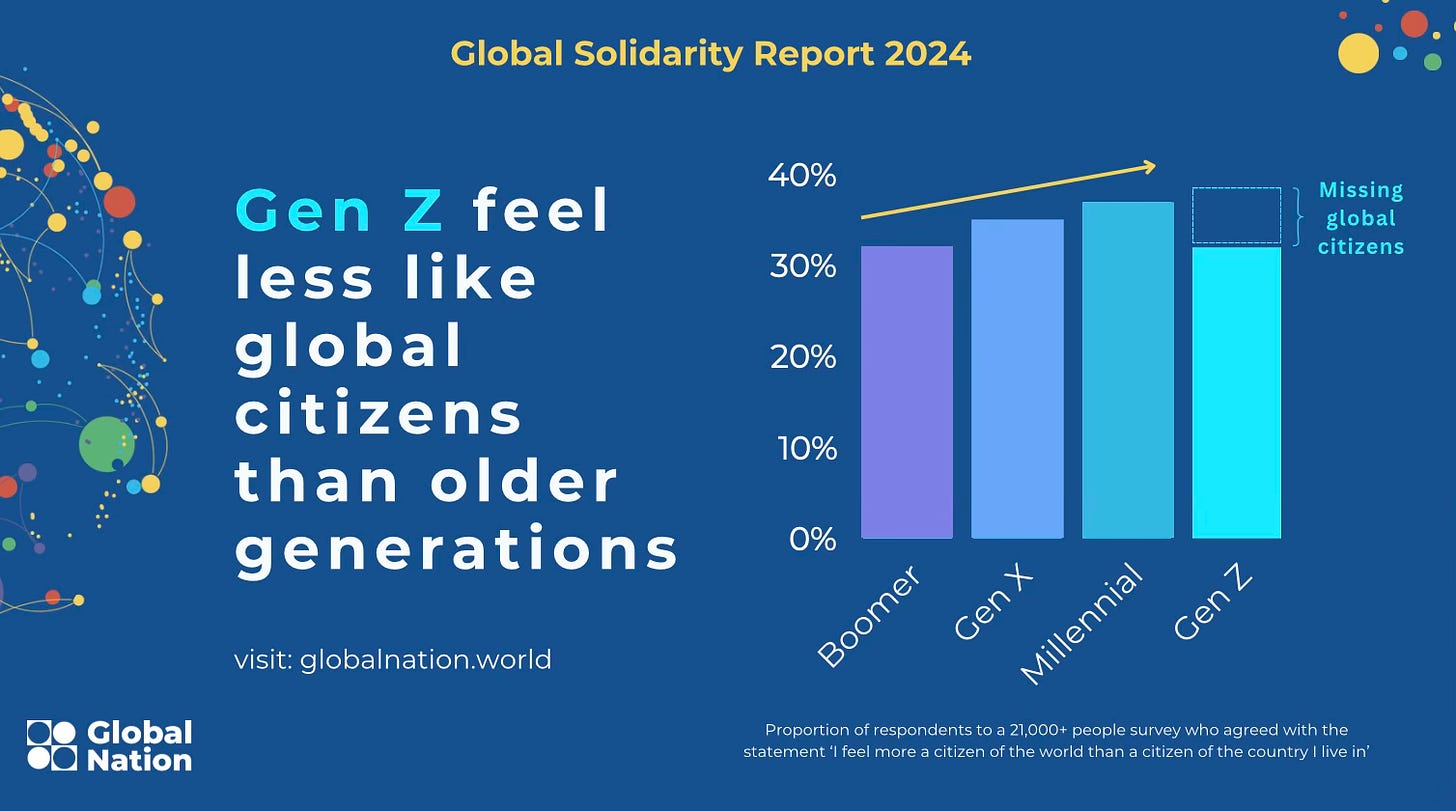Global Nation has published this year’s Global Solidarity Report, which issues a stark warning as power shifts continue and divisions between countries seemingly widen. In 2024, the world has scored just 36 out of a possible 100 on the Global Solidarity Scorecard, indicating a dangerously weak level of solidarity that falls far short of that required for effective international cooperation.
A major finding based on polling by Ipsos, commissioned for the report, is that Gen Z have less internationalist attitudes than previous generations, questioning the assumption that younger people tend to be more globally oriented. This holds true for wealthier and poorer countries, although it is most pronounced in less wealthy countries.
According to the survey of 21,023 adults, Gen Z say they feel less a citizen of the world than either Gen X or Millennials, instead displaying attitudes similar to Boomers.
When it comes to international enforcement on issues like the environment, they are the least supportive of any generation - 57% agreed that “For certain problems, like environmental pollution, international bodies should have the right to enforce solutions.” compared with 61% of Millennials, 63% of Gen X and 64% of Boomers.
Rising despair, particularly among younger people, is a clear driving force behind this finding, as set out in further research detailed in the report. It demonstrates that unless conscious and concerted effort is made to inspire hope among the public, this could lead to an increasingly difficult environment for the urgent action needed on the climate crisis, environmental protection, growing inequality, and many other global challenges.
In the report, Winnie Byanyima, United Nations Under-Secretary-General and UNAIDS Executive Director writes that “Through global solidarity, we can remake the fractured social contract. With an agreement on pandemic response, we can enable a fair and effective approach to future health crises. With an agreement to tax wealth, we can address inequality and finance the global public goods that our common future depends on. Through a succession of concrete acts of solidarity, we can overcome the destructive narratives of division and despair and unite communities around the world to improve the world.”
The report outlines two immediate actions that can start to turn the tide on rising despair:
1. We need to win the messaging war – As internationalists, we need to raise our game, escape issue-based siloes and build an overarching campaign for solidarity. We should recognise the interconnectedness of all global issues and the common challenges that show the interdependence of all countries. In place of fear of disaster, this campaign must instead inspire hope and turn the rising tide of despair.
2. We need to transform global public investment – If we can channel the existing political will, we can help deliver better and more international finance to produce results now while beginning to restore faith in the benefits of a united world. There must be the implementation of a global minimum wealth tax that will capitalise on the considerable momentum towards taxing billionaires. And the replenishment of major global funds. To create a more equitable basis for raising money, each country’s fair share contribution to multilateral funding could be calculated as a proportion of billionaire wealth.
Explore the full findings and analysis at https://globalnation.world/global-solidarity-report/
Connect with us on Linkedin or engage with us on X and share your thoughts on the report.




